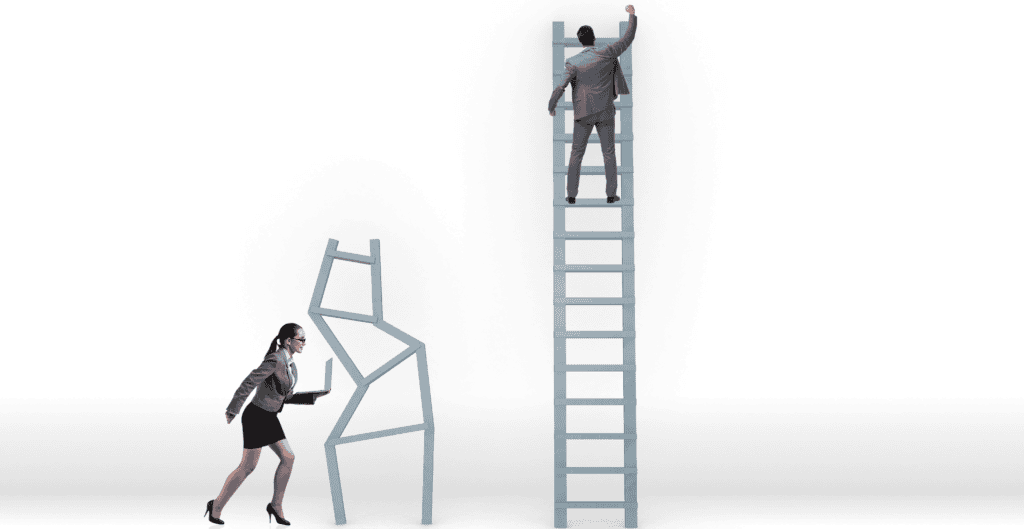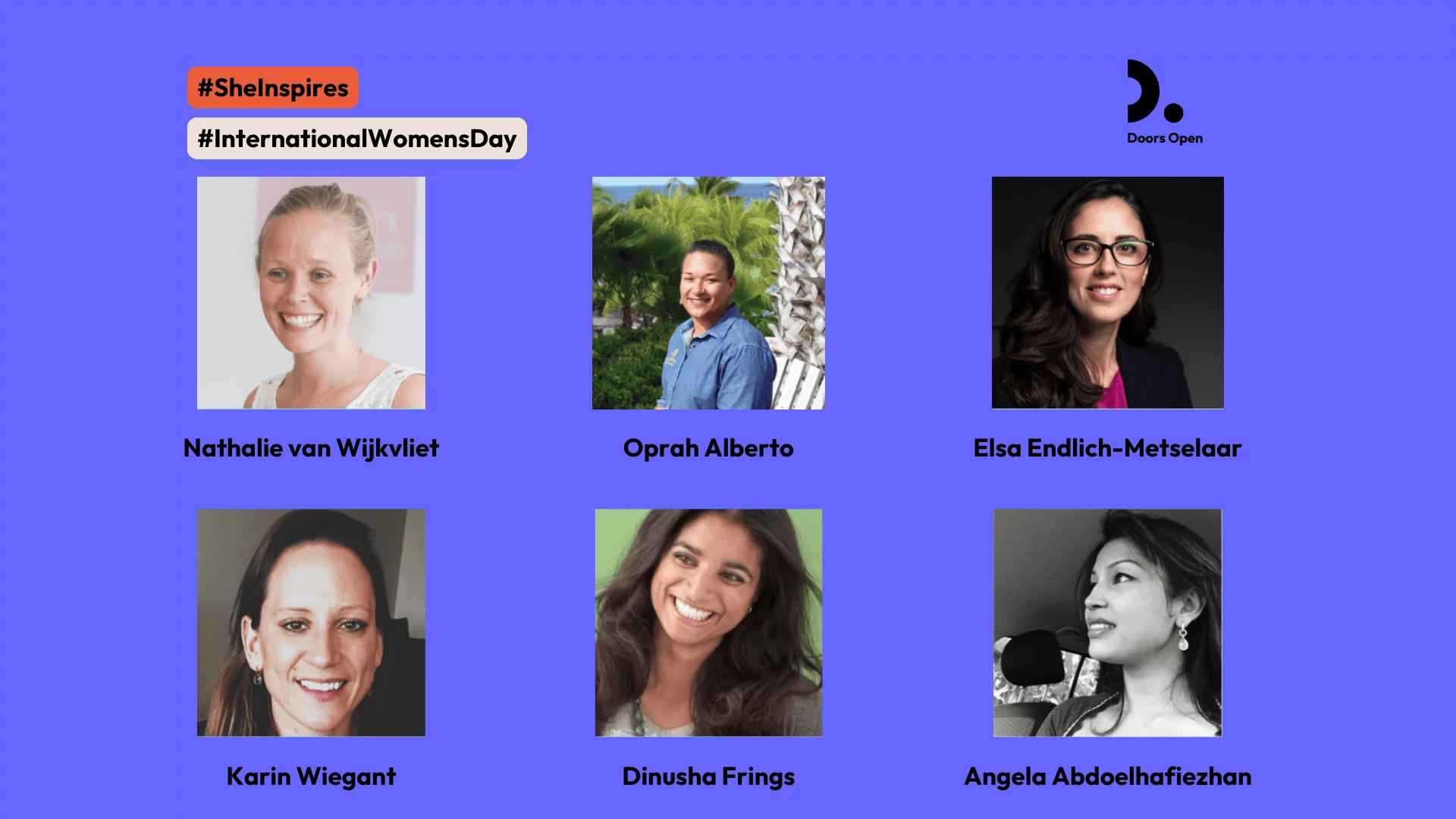“Are you sure you can handle that project? It’s quite challenging”, one of your colleagues questions, casting doubt as you volunteered to take on additional responsibilities at work. “I’m not sure if you have the right expertise for that role, my dear” another colleague chimes in.
Does this scenario sound all too familiar? Sadly, even in 2023, these deeply ingrained gender-based limiting beliefs persist, acting as roadblocks on the path to women’s progress and stifling their full potential.
In our last blog post, we explored the transformative power of somatics and embodied learning, and the benefits they bring. Today, we dive deep into the challenge of overcoming the limiting beliefs that undermine women’s growth in a professional environment. And here’s the secret weapon we unveil: somatic practices.
The Persistent Struggles

It is an unfortunate truth that women continue to face significant barriers solely due to their gender, particularly when they aspire to occupy leadership positions. Demonstrating assertiveness often leads to being unfairly perceived as unlikable or even aggressive.
Their proposals for process improvement are met with dismissive advice to ‘calm down’ or patronising explanations about why their ideas won’t work—an all-too-familiar occurrence known as ‘mansplaining.’ Additionally, job interviews and promotion discussions become battlegrounds where inappropriate questions about family planning overshadow their qualifications for the role.
Take, for instance, the discouraging remark my friend received from her manager when she requested a training course to develop herself: “Isn’t it better to focus on your home situation now?” This occurred two months after her return from maternity leave.
If you are a woman reading this, I am sure that you, unfortunately, recognise these examples. Whether through personal experiences or stories shared by friends, co-workers, or family members, these examples strike a painful chord for women.
The stereotypes and limiting beliefs about women are not only frustrating, they are hurtful and have a significant impact on women’s mental well-being and self-confidence.
So, what do we do? Do we just keep our heads down and accept this reality? Do we just shut up and tolerate these stereotypes because then “At least I won’t get criticised because of my gender?”. No, we don’t want that either.
Breaking Illusions: Beliefs versus Truths

It’s crucial to recognise that these limiting beliefs are not mere fragile constructs but deeply ingrained assumptions. While they may not represent the truth, their impact on women’s lives cannot be ignored. These beliefs persist within our societal systems, perpetuating the gender pay gap, reinforcing expectations for women to prioritise household responsibilities over career growth, and shaping how women perceive themselves, eroding their confidence and overall well-being.
When society repeatedly sends the message that women are not deserving or capable, it’s no wonder that some of us begin to internalise these ideas. These societal norms have become so woven into our cultural fabric that we unwittingly absorb them, leading many to develop self-limiting beliefs rooted in these constraining assumptions.
The Imposter Syndrome Phenomenon

Now, let’s delve into one of the significant self-limiting beliefs that women often grapple with: the imposter syndrome. Perhaps you can relate to that lingering feeling of being an imposter, even after securing a job or receiving a well-deserved promotion. It’s that nagging thought that somehow you’ve managed to deceive everyone into believing in your competence, while deep down, you fear you lack the necessary knowledge or skills. Here’s the truth: you’re not alone in experiencing this phenomenon.
The imposter syndrome is a psychological pattern that affects many individuals, where you start to feel like a fraud, regardless of your accomplishments. However, it tends to be particularly prevalent among women who are confronted with the gender-based limiting beliefs in the workplace. This harmful thinking pattern often gives rise to a pervasive sense of self-doubt and a persistent feeling of inadequacy.
Harnessing the Power of Somatic Practices

Do you remember our last blog post? We explained that somatic practices pave the way to creating a mind-body connection, enabling you to become more attuned to your physical sensations and their influence on thoughts and emotions. Well, you guessed it: somatic practices are the secret weapon challenging gender-based stereotypes and the feelings of self-doubt they bring.
Dealing with pent-up stress
In our pursuit of professional excellence, many have become used to keeping our personal worries to ourselves when entering the workplace. We take our emotions and we stow them away in the back of our heads, making sure they cannot hinder our professional performance in any way.
In our society, we have been conditioned to prioritise our cognitive intelligence while neglecting the rich source of wisdom within our own bodies. We have learned to suppress our emotions and hide our vulnerabilities, believing that displaying them in the workplace is a sign of weakness. This is especially true for women; We want to make sure not to provide our colleagues with ANY ammunition that supports women’s supposed emotional frailty. We don’t need to hear any “I TOLD you so’s”.
But when we let stress build up like that, negative thoughts will grow. How often have all your worries felt so much bigger simply because you were not able to express them?
What if I told you that tapping into the intelligence of your body—the realm of emotions, sensations, and intuition—could be the key to effectively navigating the challenges that arise in your professional life?
Let’s consider an example: speaking up and sharing your opinion confidently in meetings. If this proves to be a daunting task, there is a somatic practice that can assist you in reclaiming your voice and taking up space. By engaging in a somatic practice called “centering,” you can connect with your body’s innate wisdom, allowing you to feel grounded, present, and assertive.
Empowering Confidence
Somatic practices emphasise and embrace the power and capabilities of our body. Through movement, breathwork or exercises using the body, women can explore and reclaim their power, cultivating a sense of strength, confidence and agency. The engagement with their bodies in such a positive and empowering way, serves as an antidote for women to the impact of hurtful societal norms and stereotypes.
Amy Cuddy, a prominent voice on the subject, emphasises the critical role of your body and its intelligence when it comes to building confidence in her enlightening TED Talk. Her insights are particularly valuable for women confronting limiting beliefs and the imposter syndrome.
In summary, somatic practices can serve as a guiding light for women facing workplace challenges every day. Caused by hurtful beliefs that are deeply rooted in our society, impeding women’s growth opportunities and fulfilment, and negatively impacting their mental wellbeing.

Doors Open invites you to embark on a transformative journey of self-discovery and empowerment through somatic coaching. In collaboration with Boudewijn Bertsch, a certified somatic coach with a background in evolutionary biology and neurobiology, we have created the Embodied Leadership Retreat – an immersive 2-day experience designed explicitly for women navigating gender-based difficulties in the workplace. No more “You’re too emotional for this project”, or “you should gain more experience if you want to get that promotion”. By the use of somatic practices and embodied learning, this retreat equips women with innovative and effective solutions to enhance their leadership.
Want to know more?
Contact us to find out the specifics the Embodied Leadership Retreat. Together, we can shatter the glass ceilings, and embrace a future free from the constraints of limiting beliefs!




